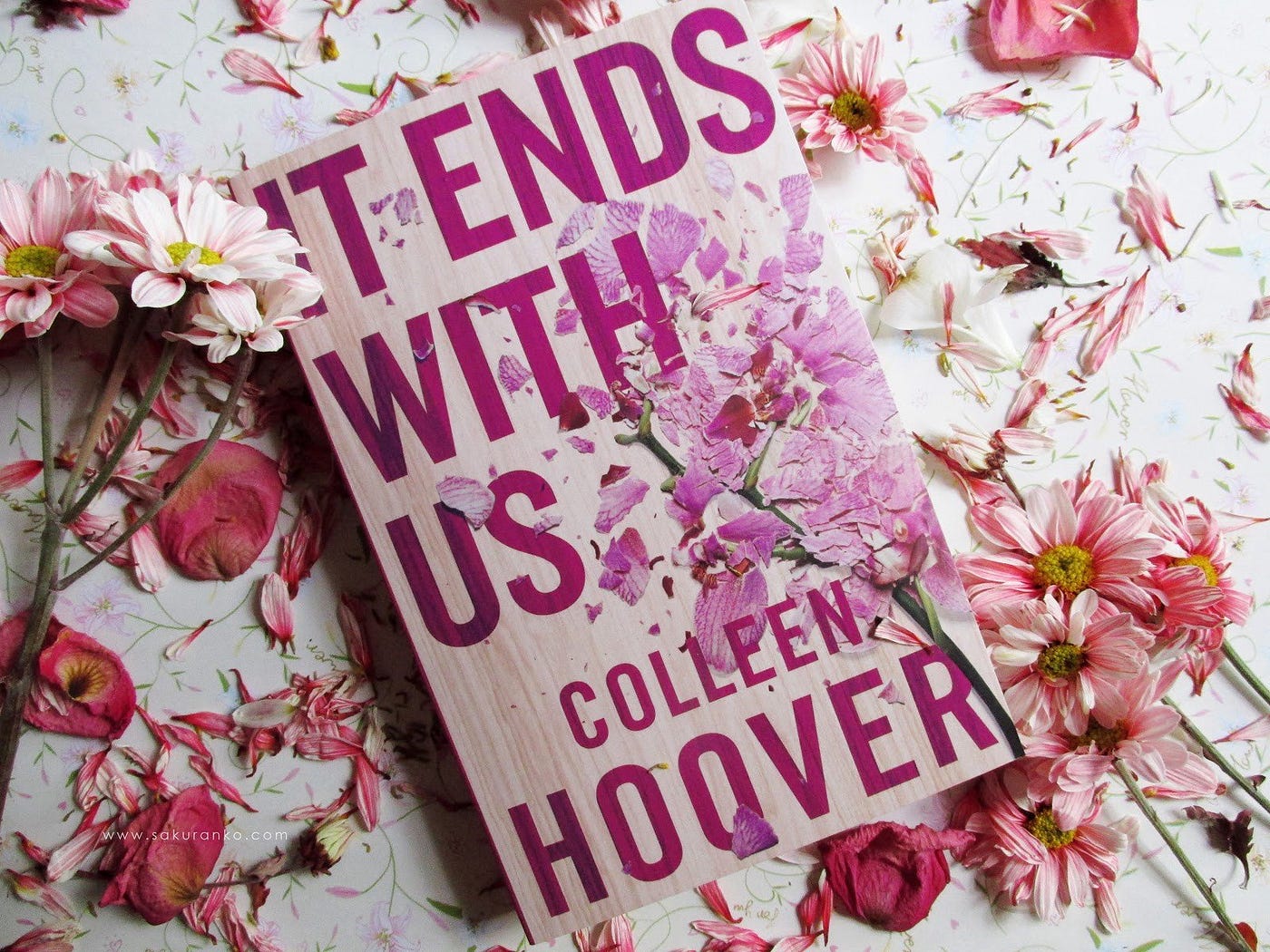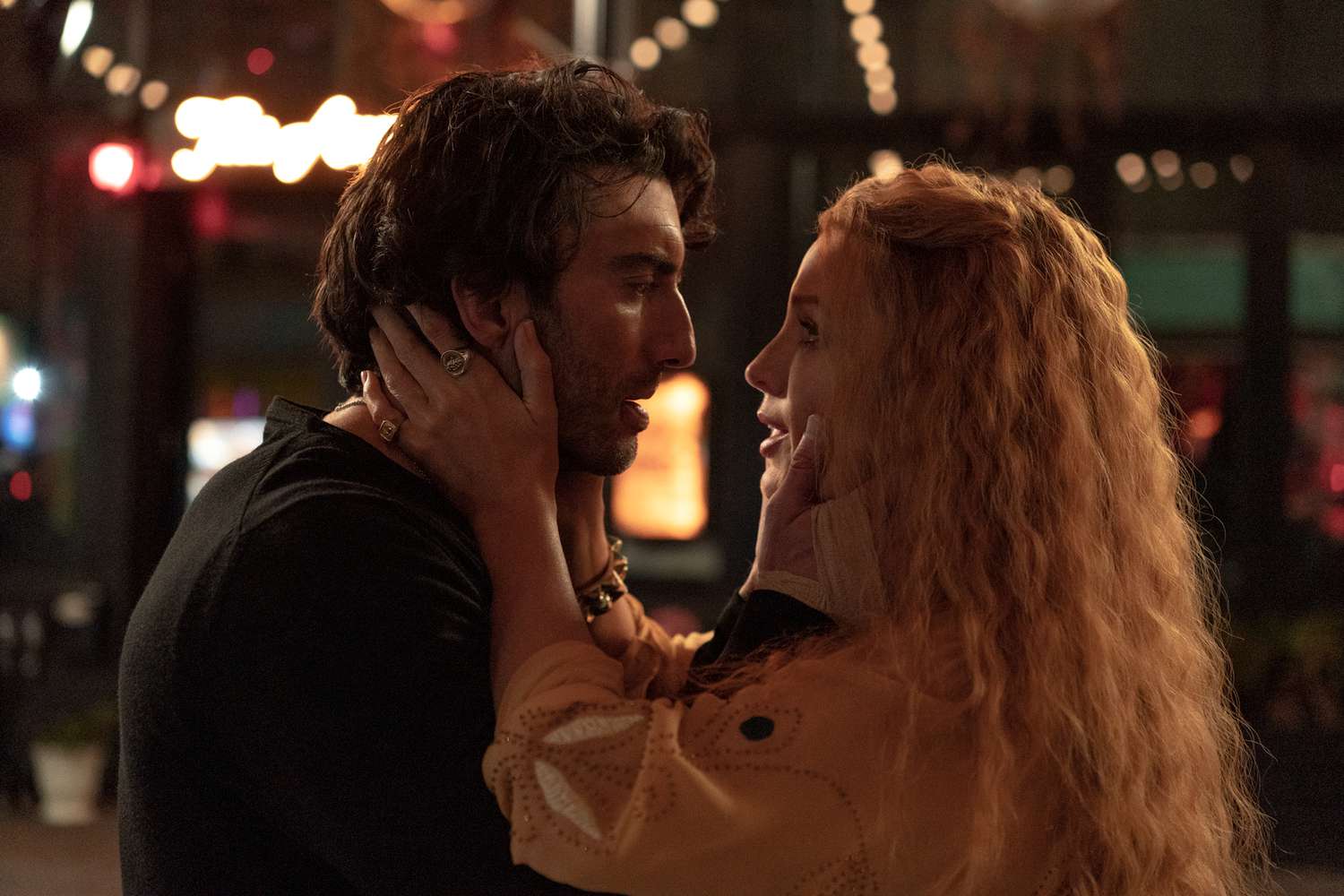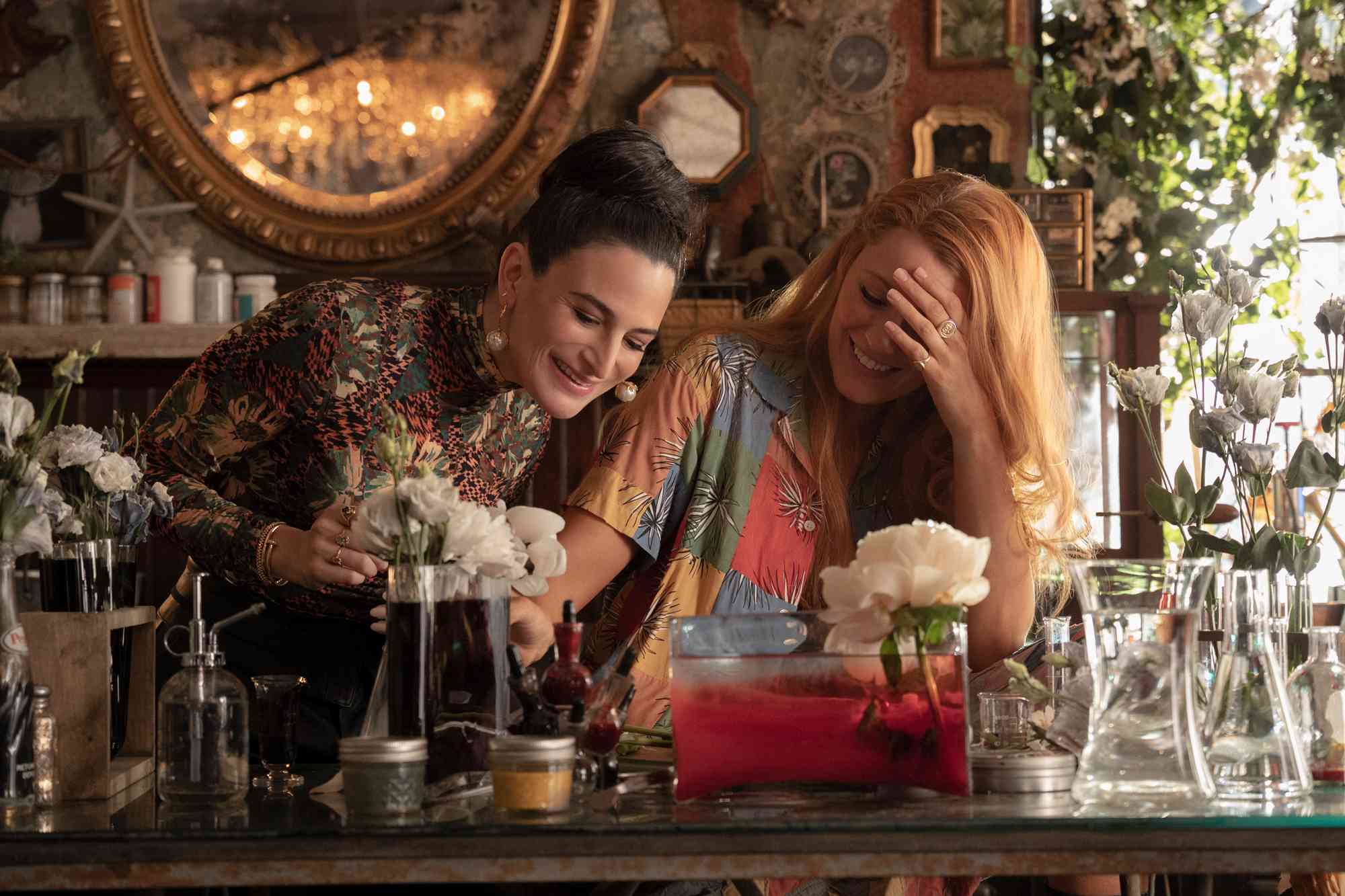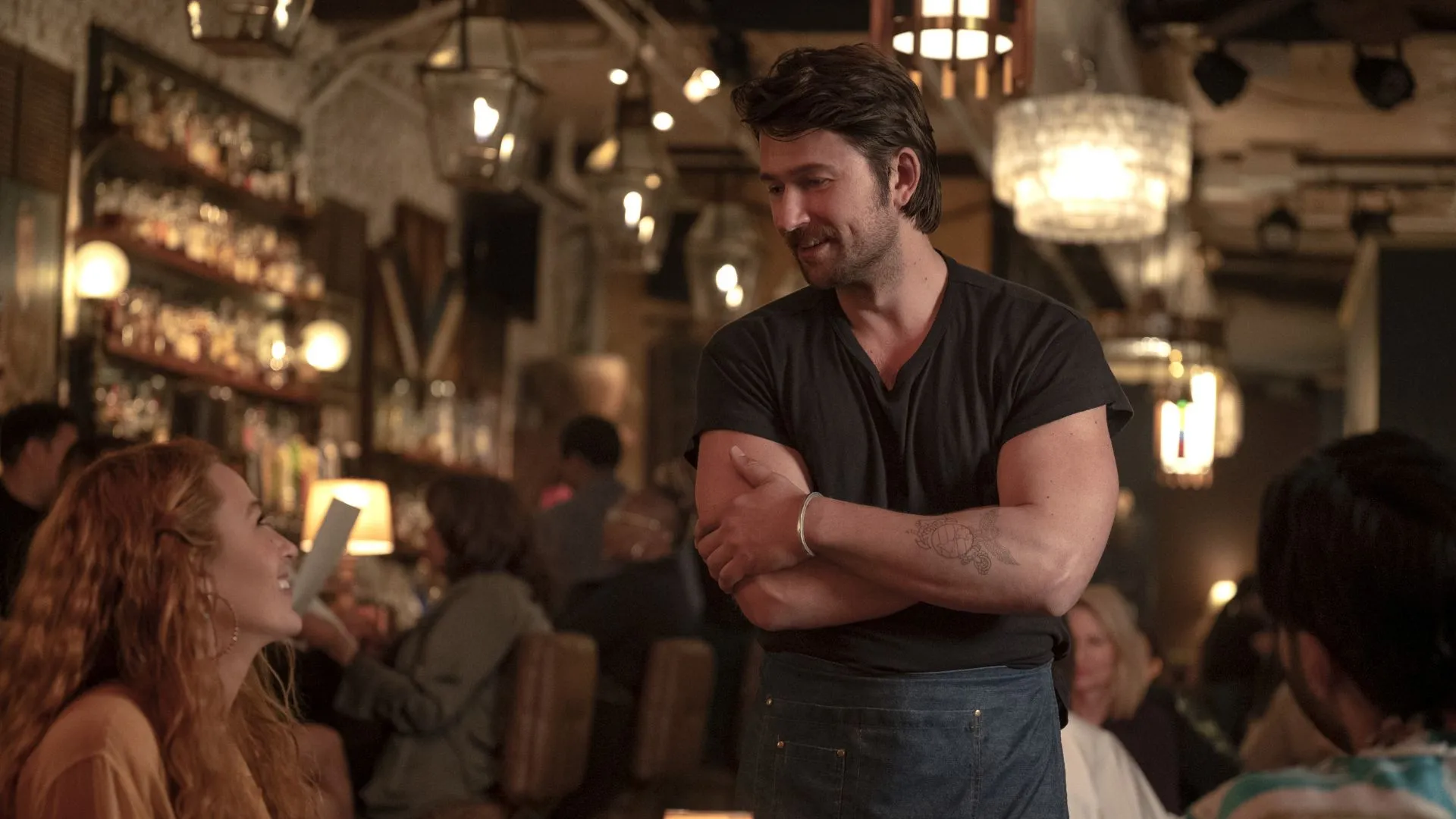The Red Envelope: Billkin and PP Krit’s Take on a Love Story Beyond the Grave
In a cinematic landscape saturated with remakes, reboots and sequels, you might ...

On International Literacy Day, let’s talk about a book that sunk its emotional claws into millions of readers: Colleen Hoover’s 2016 novel It Ends With Us. In 2024, the story made its way to the big screen. And things… shifted. So what exactly happened during the leap from page to screen, and what gets lost when Hollywood steps in?

Photo: Courtesy of Sony Pictures
Colleen Hoover’s It Ends With Us is far more than a romance novel; it’s a raw and unflinching look at domestic violence and the cyclical nature of abuse. Hoover crafted the story based on personal experiences, infusing it with a level of authenticity that’s both heart-wrenching and thought-provoking.
Lily Bloom, our protagonist, deals with a traumatic past and an even more traumatic present as she finds herself in an abusive relationship with her husband, Ryle Kincaid, while grappling with feelings for her first love, Atlas Corrigan. It’s messy, it’s uncomfortable and it’s real.

What makes the book powerful is its exploration of difficult themes: abuse, forgiveness and the courage to break free from toxic relationships. Hoover peels back the layers of Lily’s internal conflict in a way that pulls readers in, making us feel every complicated emotion. Her portrayal of Lily’s internal struggles is intimate, capturing the reader’s empathy and making her decisions, while controversial, deeply understandable.
Fast forward to 2024, and It Ends With Us is gracing cinema screens, with Justin Baldoni directing and Christy Hall penning the screenplay. Despite the anticipation, the film received mixed reviews, largely due to its handling of the source material.
One of the most contentious changes was the ageing of the characters. In the novel, Lily is 23, while Ryle is 29 and Atlas is 25. The film, however, ages them up to their mid-30s. While the intention was to make the story more relatable to a broader audience, the result is a significant shift in the narrative’s tone.
The youth and vulnerability of the characters in the book are critical to understanding their actions and motivations. By ageing them, the film loses some of that raw, youthful intensity that made the novel’s exploration of abuse and its aftermath so compelling.
Director Justin Baldoni defended this choice by explaining that ageing up the characters made the story more universal and accessible to women of all ages, shifting it out of the Young Adults (YA) genre. Author Colleen Hoover also supported the decision, acknowledging that it corrected a mistake in the book, as it’s unrealistic for a 28-year-old to already be a neurosurgeon.
Now, here’s where things really start to shift. In the book, Lily’s abusive father is a looming presence early on, setting up the emotional rollercoaster she’s about to ride. The film, though, holds back on this until after Ryle’s first violent outburst. It’s a move that lessens the weight of Lily’s decisions because we don’t fully understand the scars she’s carrying. In a story where trauma shapes every choice, that’s a significant change.
Another significant omission is the character development of Ryle. In the book, Ryle’s childhood trauma is a pivotal moment that explains his violent tendencies and adds layers to his character. The novel shows his struggle to manage his anger, making his eventual downfall even more tragic. The film, however, glosses over this, opting for a simplified portrayal that reduces Ryle to a one-dimensional antagonist. He becomes more of a straightforward antagonist and that, in turn, simplifies the story’s message about abusers and the cycle of violence.

Photo: Courtesy of Nicole Rivelli
Several supporting characters and symbolic elements from the book didn’t make it into the movie. Lily’s roommate, Lucy, and her gay friend, Devin, who both play crucial roles in her life, are absent from the film.
Their absence leaves Lily more isolated in the film than she was in the novel, making her struggle seem lonelier and more contained. It’s a strange choice when these characters not only offer Lily emotional support but also add layers to the theme of friendship and personal growth.

Photo: Courtesy of Jojo Whilden
The film also downplays the significance of Lily’s journals, a crucial narrative device in the book. In the novel, Lily writes letters to Ellen DeGeneres, which serve as a window into her past and her relationship with Atlas. It’s a clever narrative device that gives readers access to her inner world. The film brushes over this, leaving us with a more surface-level understanding of Lily’s thoughts and feelings.
For those paying close attention, Atlas’s restaurant gets a name change from Bib’s in the novel to Roots in the film. It’s a small change, but Bib’s, short for “Better in Boston,” had a personal touch, representing a shared dream between Lily and Atlas. Roots pays homage to a conversation between Lily and Atlas about the importance of strong roots, adding depth to their relationship.

Adapting a book like It Ends With Us is no easy feat, and the film does deliver in many ways. But for those who connected with Hoover’s novel on a deeper level, the film feels like it missed a few key marks. The ageing of characters, the removal of key plot elements and the simplification of relationships all contribute to a film that’s more standard fare than the groundbreaking story it could have been.
Still, as we celebrate International Literacy Day it’s worth reflecting on what gets lost when stories move from page to screen. The novel’s depth, emotional nuance and complex themes are harder to capture on film, but that doesn’t mean the story’s message is any less important. But, for those wanting to connect with the full weight of Lily’s journey and an insight into the strength it takes to break free from cycles of abuse, the book remains the version to beat.
In a cinematic landscape saturated with remakes, reboots and sequels, you might ...
Find out more about your celeb favourites and their most loved vacation ...
These top 5 barber shops in Bangkok are where gentlemen can elevate ...
While traditional TV shows are serving us endless boy-meets-girl tales. Thailand has ...
Sailorr and Molly Santana’s black grills fuse hip-hop swagger with homage to ...
Netflix Thailand has officially announced a new price for base subscriptions We’ve ...
Wee use cookies to deliver your best experience on our website. By using our website, you consent to our cookies in accordance with our cookies policy and privacy policy